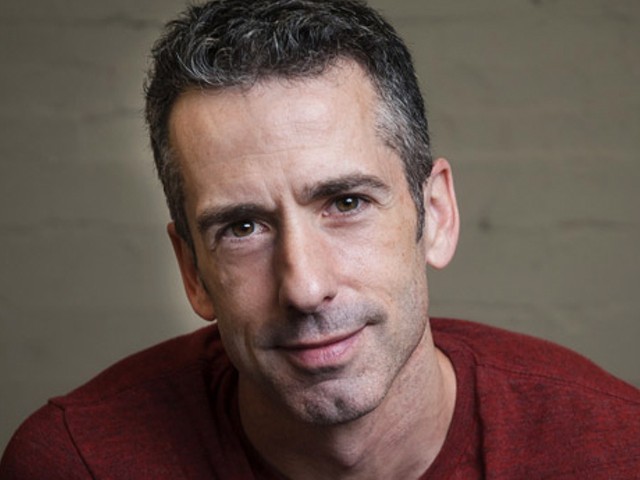Ivory D. Williams is a proud black man, a semi-retiree who likes to promote "the ancient art of African and African-American storytelling in the oral tradition."
He doesn't think much of any of Detroit's last few mayors. "After the death of the late great Mayor Coleman Young, every single mayor since has spewed nothing but hypocrisy — every one, and the city as a whole hasn't moved an inch," he said.
When Mike Duggan moved in and launched his write-in bid for mayor, Williams, a Vietnam vet and former elementary school principal, was anything but excited. "Voting, for me, was an eeny-meeney-miney-moe exercise," he told me.
When the day came two years ago he ended up voting against Duggan, "but he won anyway." Yet over the last year, Williams has found himself — to his astonishment — admiring the mayor.
Take Mike Duggan's roaring, enthusiastic State of the City speech. "Lo and behold," Ivory Williams said. "He's talking about stuff that I could actually benefit from as a citizen that has nothing to do with downtown." Nor is it all talk.
"Positive and tangible stuff is indeed starting to happen in the hood," he posted to his regular discussion group, adding:
"As much as it hurts my mouth to say it ... I liked it."
Nor was he the only one. There were lots of people, including me, who were skeptical about Duggan, who first won notice in the 1990s as a top aide to Wayne County Executive Ed McNamara, one of our last great political bosses.
We saw Duggan then as an enforcer and a fixer, if a very shrewd and effective one. Later, there was a stint as county prosecutor, before he became the guy who got the Detroit Medical Center out of a mess.
Yet running Detroit was an entirely different challenge. Whether or not you agree with Ivory Williams about Coleman Young, think of those who followed him. Dennis Archer, who came across as respectable, professional, but did nothing to halt the city's decline. Kwame Kilpatrick, who acted as though Detroit had been founded to be his own personal bordello, bank, and candy store. Two caretakers, Kenny Cockrel Jr. and Dave Bing.
Two years ago, the atmosphere in city government was one of bleak despair and total nastiness. Everyone was waiting for what most knew would come: takeover and bankruptcy.
Yet now, for the first time in years, Detroit has a mayor with an infectious, cheerful, can-do attitude. What's more, he is doing. His folks have installed 35,000 new streetlights.
They've cut down police and emergency response times. Bought new ambulances, reopened parks, with the help of residents and community groups willing to clean and weed.
The city has doubled the number of ambulances it owns, and is buying 80 new buses that — they say — will finally mean DDOT buses actually showing up on time.
Houses nobody thought anyone would buy are being sold at auction; the city has also sold hundreds of vacant "side lots" to homeowners next door. Things are moving.
Not, granted, moving with lightning speed. Listening to Duggan wax enthusiastic, I suddenly remembered John F. Kennedy's inaugural address: "All this will not be finished in the first hundred days. Nor will it be finished in the first thousand days, nor in the life of this administration, nor even perhaps in our lifetime on this planet," he said back in 1961.
"But let us begin."
People were inspired. They seem inspired now in Detroit. Something really is happening.
We don't know yet how long the enthusiasm will last. Things are getting better. But there are still neighborhoods you do not want to enter, even in daylight. There are still people who have no clue how to function in the working world.
What happens if, and almost certainly when, there's some horrible scandal, city finances tip into the red, or City Council abandons what might well be called its current fit of temporary sanity? What happens if and when Mike Duggan leaves?
No clue. But something good is happening. Perhaps the words of an old minister Martin Luther King Jr. used to quote sum it up best: "Lord, we ain't what we should be and we ain't what we gonna be. But thank god, we ain't what we was."
Thought for the Day:
Last week, NBC news anchor Brian Williams was suspended for six months for falsely claiming he was on a helicopter that was hit by a rocket-propelled grenade in 2003 during our last glorious Iraq War.
I don't have a whole lot of sympathy for Williams, who evidently told this story so long he himself believed it. He is not, of course, a journalist, but a "TV personality," who shuttled back and forth between news and entertainment.
For him, there wasn't any "blurred line"; life was merely an endless Brian Williams show, one for which he was paid at least $10 million a year. But the network encouraged this sort of thing, and, without a scorecard, nobody, maybe including Brian, could ever say they were always sure what he was up to.
Try to imagine Walter Cronkite as making an occasional appearance on the Three Stooges. Today, the world is different. Far fewer people watch half-hour TV network news than did before the age of cable and the Internet, and most of those who do are boomers, or older.
Still, it's annoying to see all the sanctimonious conservatives gleefully chortling that this proves everything they've always said about mainstream media.
You have to wonder ... does anyone except me remember that the entire war was based on lies? Lies told, that is, by the then-president and vice president of the United States, George W. Bush and Dick Cheney?
Whatever you think of this whole sordid mess, it might be worth remembering that Bush's War killed more than 100,000 people. As far as I know, nobody died because Brian lied.
Except, perhaps, for some of the dwindling credibility we in the media still have.





